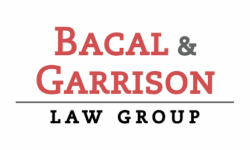|
On December 1, 2016, the U.S. Copyright Office will implement its new electronic system for registering and maintaining the contact information of designated copyright agents under the Digital Millennium Copyright Act (DMCA). To qualify for, or maintain, the safe harbor protections of the DMCA, all online service providers and website owners who allow users to post, store or transmit content must register (or re-register) on the new electronic system. Failure to register subjects the provider to potential liability for monetary damages arising from a user’s posting or sending material that infringes another person’s copyright.
What is the DMCA? The DMCA was enacted in 1998 to address issues related to the protection and enforcement of digital copyrighted works. One of its principal effects was the creation of a safe harbor for online services providers (such as hosting companies, e-mail providers, and some websites) whose services could be utilized by customers or other users to transmit or publish material that infringes another person’s copyright. If the online service provider follows all of the statutory requirements for safe harbor protection, it cannot be held liable for monetary damages arising from the copyright infringement of its users. DMCA Registration of Designated Copyright Agent One of the statutory requirements for obtaining DMCA safe harbor protection is registering with the U.S. Copyright Office the name and contact information of the service provider’s agent designated to receive notices of alleged infringement. Registration is a condition of safe harbor protection. If your agent is not registered, you do not qualify for the safe harbor protection and may become liable for money damages based upon your customer’s copyright infringement. Traditionally, agent registration with the Copyright Office was conducted by mail or in person. On December 1, 2016, that changes. The Copyright Office’s new electronic registration system will go live and begin accepting registration online. Even if you have previously registered your designated agent under the old system, you must re-file under the new electronic system in order to maintain safe harbor protection on future infringement claims. If you previously registered with the Copyright Office under the old system, you have until December 31, 2017 to file your new registration under the electronic system. Do I Need to Register? Under the DMCA, “online service provider” is broadly defined. It includes services providers that you would traditionally expect: internet service providers, website hosting companies, cloud services provider, and e-mail services providers. But it also includes the owners and operators of websites or other platforms that allow its users to post or transmit content on or though the website. This might include not only commercial websites, but educational websites or online educational platforms and non-profit websites. In short, if you have a website, portal or platform that allows users to post, transmit, or store digital materials on or through your system, you should register for the DMCA safe harbor protection on December 1, or as soon thereafter as possible. Once initially registered, you must renew those registrations every three years in order to maintain safe harbor eligibility. Questions and Assistance For other questions and assistance in understanding and complying with all of the DMCA safe harbor requirements and registering your designated agent, you should contact a copyright attorney with experience in this area.
0 Comments
PRESIDENT OBAMA SIGNS FEDERAL TRADE SECRETS BILL INTO LAW ON MAY 11
Historically, when a trade secret has been misappropriated, the trade secret owner had to rely primarily upon a patchwork of state statutory and common law to stop the misappropriation and obtain damages or other relief. That changed on May 11, 2016 when President Obama signed the Defend Trade Secrets Act of 2015 (“DTSA”) into law. The bill amended 18 U.S.C. § 1836(b) to create a federal civil private cause of action for trade secret misappropriation. For the first time, plaintiffs can bring a federal cause of action for misappropriation of trade secrets, as long as the trade secret relates to a product or service used or intended for use in interstate or foreign commerce. The creation of a federal trade secret cause of action also allows the owner of a misappropriated trade secret to sue in federal court without having to bring a state law cause of action and establish diversity jurisdiction. The DTSA adopts the definition of “misappropriation” found in the Uniform Trade Secrets Act (“UTSA”) (previously adopted in most states), while the definition of “trade secrets” in the DTSA is broader than that found in the UTSA. The DTSA also provides certain remedies to trade secret owners including, without limitation, the ability to obtain a seizure order from the court for “property necessary to prevent the propagation or dissemination of the trade secret;” injunctive relief; damages for actual loss and/or unjust enrichment, or, in the alternative, a reasonable royalty for the unauthorized use or disclosure of the trade secret; and, in cases where willful and malicious misappropriation is demonstrated, exemplary damages of up to 2 times the amount of damages awarded plus reasonable attorney’s fees. There is also a potential trap for the unwary, involving the failure to give a required notice, and added whistleblower protections for employees. Under the new law, a company’s employees, contractors and consultants are granted immunity under all federal and state trade secret laws for disclosing a trade secret (i) in confidence to any federal, state or local government or an attorney when done solely for the purpose of reporting or investigating a suspected violation of law, (ii) in any court filing made under seal, and/or (iii) to an attorney or in a document filed in court under seal in connection with any lawsuit filed against the employer that alleges retaliation for reporting a suspected violation of law. An employer must give notice of this immunity to its employees, contractors and consultants “in any contract or agreement” with them that governs the use of trade secrets or other confidential information. If the employer fails to give the required notice, it forfeits the right to obtain exemplary damages and attorney’s fees against such employee, contractor or consultant to whom it failed to give notice in any case brought against such person for misappropriation under the federal law. Accordingly, all employers who do require their employees, contractors and/or consultants to sign confidentiality agreements, trade secret agreements or other intellectual property or proprietary rights agreement that may affect the use of trade secrets or confidential information should take the time now to review those contracts with their lawyer and revise these contracts to include the required notice. Otherwise, important remedies might be lost. Indeed it generally makes sense to review the trade secret strategy of most companies on a regular basis, and this new statute provides a further good reason to do so now. Many companies do not give sufficient time to ensuring continued protection of confidential, non-public information that gives the company a competitive edge until after it has already leaked out to others. We regularly assist clients in protecting and enforcing confidential and trade secret information, and in defending against allegations of misappropriation or other wrongful conduct by former officers and/or employees. Our firm was part of the successful appellate team in Taser Int’l, Inc. v. Ward, 231 P.3d 921, 224 Ariz. 389 (Ariz. App. 2010), which provided important clarifications to Arizona law regarding an employee’s rights and duties upon leaving employment. Posted by Sean Garrison on May 14, 2016. SEAN GARRISON is a busy, contributing member of the AMERICAN INTELLECTUAL PROPERTY ASSOCIATION (AIPLA). Sean is an active participant in AIPLA's ongoing efforts to monitor and address important issues in trademark law. As a member of AIPLA's Trademark Relations with the USPTO Committee, Sean has served on a subcommittee which reviews, addresses and comments upon newly proposed amendments to the rules of practice before the Trademark Trial and Appeal Board (TTAB). Sean is also actively involved in AIPLA's Trademark Litigation Commitee, where he is spearheading the effort to track and evaluate the effect of a recent US Supreme Court decision, B&B Hardware vs. Hargis. In that case, the Supreme Court held that a trial court, in subsequent trademark litigation, can rely upon the earlier final decisions of the TTAB on the question of likelihood of confusion, and can use such determinations as a basis for applying collateral estoppel and thereby prevent relitigation of the same issue of likelihood of confusion. Sean has determined that some trial courts have already relied on the Supreme Court decision not only on the issue of likelihood of confusion, but also as to whether a party has prior rights in a contested mark and whether a party has committed fraud on the USPTO. Added by Glenn Bacal on May 8, 2016.
In April 2016, GLENN BACAL, our Managing Attorney, and Ms. AMY BACAL, our Office Manager, met with various trademark counsel in Japan who are actively assisting our clients on various matters. Joseph Bacal, who has worked summers at Bacal Andersen and Garrison Law Group, who now teaches English in Japan, and who speaks Japanese, also participated at the meetings. One of those law firms was RIN IP PARTNERS, with whom we have had a long relationship. In recognition of the visit, RIN PARTNERS posted the following picture on their website at http://www.rin.or.jp/visit.html with the heading: Bacal Andersen & Garrison Law Group(米国)のMr. Glenn Spencer Bacal、Mrs. Amy Bacalご夫妻とご子息にご訪問頂き、訴訟事件の打合せを行いました。
It is The IDES OF MARCH. When I studied "Modern History" at Oxford for two years, the subject matter started with Roman Britain. In Roman times, the Ides of March, which corresponds to March 15, was a time when several different religious observances occurred, and historically was also the date when Julius Caesar met his untimely end. In trademark parlance, there is but a single registration on the Federal Register for THE IDES OF MARCH, Registration 2088918, for a series of audio recordings and for entertainment services. It has been registered for nearly two decades. There are 48 registered marks with IDES as an element and only one for IDES alone. Is it owned by anyone Italian, perhaps a descendant of the Romans? No, IDES in a stylized format is registered by a Japanese company as Registration 4638935 for baby carriages and toys, among other things. Submitted by Glenn Bacal on March 15, 2016.
The observations about Abraham Lincoln by his partner in the law firm of Lincoln & Herndon, a law firm that has inspired us ("A great law firm doesn't have to be large"), are the focus of a recent article in the Wall Street Journal. William H. ("Billy") Herndon was Abraham Lincoln's law partner. The Wall Street Journal on January 29, 2016 published an article about a new book HERNDON ON LINCOLN: LETTERS by Wilson and Davis, . This new book presents a collection of Billy Herndon's letters to others which included many interesting observations about Lincoln that Herndon gleaned from his years with Lincoln. Because Lincoln is such a gigantic figure in American history, getting a glimpse of Lincoln the man and the lawyer behind the scenes is thrilling. Whether lawyers today, famous or not, would ever want their former law partners to make quite so many observations about them to others is of course an open question, as some of the more physical observations itemized in the review of this new book may be a bit too personal. Then again, anything that gives us a clue to what Lincoln was really like is probably worth pursuing. The article is a good read, as probably will be the book as well. Glenn Bacal January 30, 2016
|
Authors
Each of the Attorneys from Bacal & Garrison will contribute blog posts from time to time Archives
November 2016
Categories |


 RSS Feed
RSS Feed
